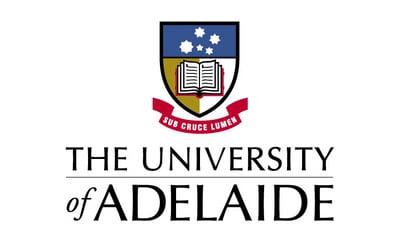Lumen Wirltuti:Warltati 2025 - Flipbook - Page 12

Lumen feature
Climate change
We are facing a climate future which is increasingly hot and dry,
with temperatures rising and rainfall declining. The increase in
extreme temperatures is especially alarming, with the potential for
catastrophic impacts not only on human health and wellbeing but
also on ecosystem health and biodiversity.
Our researchers are formulating and enacting evidence-based
solutions to protect natural and human systems and prepare for the
change. Our work includes examining the impact of urban canopy
levels, the impact of climate change on human health, examining
sustainable fire management and other necessary climate change
adaptation.
Biodiversity loss
Mitigating future biodiversity losses and maintaining resilient
ecosystems in the face of shifting climate is a significant challenge,
and we are working to provide the context, tools and policy
guidance needed. This includes work to restore ecosystems such
as our lost Australian oyster reef system as well as restoration of
seagrass in Gulf St Vincent off Port Gawler.
We are also reviewing threats to the Great Artesian Basin springs,
and we are engaged in a series of research projects to gain a better
understanding of how animals and plants survived climate and
environmental shifts of the past. This includes work tracing 6,000
years of Adélie penguin history in Antarctica, and the decline of
southern elephant seals over the past 1,000 years.
economists and social scientists who work in collaboration with
the water sector and water users.
Our team worked to create the healthy Coorong action plan
to help inform its restoration back to its natural state of healthy
vegetation, and abundant and diverse waterbirds, fish and plants.
Internationally, we also researched the potential for expanding
equitable use of urban rainwater in South Asia and possibilities
for upscaling harvesting projects.
Nature disconnect
We seek to foster a sense of shared responsibility for the
preservation of our natural world and inspire collective action
towards a more sustainable future through events, public lectures,
podcasts, citizen science and actively involving the public in
our research.
Waste and pollution
Citizen science projects underway include: learning more
about our wild echidna populations through the EchidnaCSI
app; improving bandicoot protection by discovering unoccupied
blackberry habitat within bushland for relocation of this
endangered species; reef and dune restoration projects; and
the development of a new citizen science platform launched
last year (SciStarter) which links volunteers with projects.
Pollution and emerging contaminants are increasingly urgent
research areas, with toxic substances like pesticides, microplastics,
e-waste and perfluoroalkyl and polyfluoroalkyl chemicals (PFAS)
spreading globally. Environment Institute researchers are studying
contaminant pathways, assessing their environmental impacts, and
developing strategies to monitor, mitigate and prevent pollution
through supply chain redesign, changing consumption patterns
and advanced technologies.
Unsustainable planet
We explore the impact of human activities on the environment
and ways to mitigate and prevent pollution through innovative
approaches to waste management and consumption. Our research
also seeks to understand how social factors influence environmental
issues, and how best to engage communities in environmental
decision making.
Research includes efforts to reduce CO2 emissions and
nutrient and pesticide pollution from vineyards and canola fields;
studying the amount and type of plastic pollution in 38 freshwater
lakes and reservoirs across the globe, and; quantifying the presence
of ingested microplastics in Australian seafood market fish species.
Research ranges from examining ways in which communities
engage with the issue of climate change, to agricultural risk
management, and a collaboration with schools and communities
in Arnhem Land to find solutions for the plastic pollution problem
impacting the shoreline – establishing recycling systems which
converts the waste into skateboards, Frisbees and sports
equipment.
Government inaction
Water insecurity
The Environment Institute works in partnership with local and
international governments, communities and industry to deliver
solutions to safeguard the planet’s land, water and air resources.
These partnerships play a vital role in promoting collaboration and
shared accountability, uniting diverse perspectives, expertise and
resources, and ensuring we can deliver impactful solutions
and lasting change.
Water resources are a key strategic asset for all nations worldwide.
We undertake research to support the sustainable management
of these resources. Researchers involved include hydrologists,
ecologists, biogeochemists, engineers, architects, modellers,
The research of our members also plays a significant role in the
development and reform of environmental laws and policies, and
the development of innovative tools and technologies to drive broad
systemic change.
12